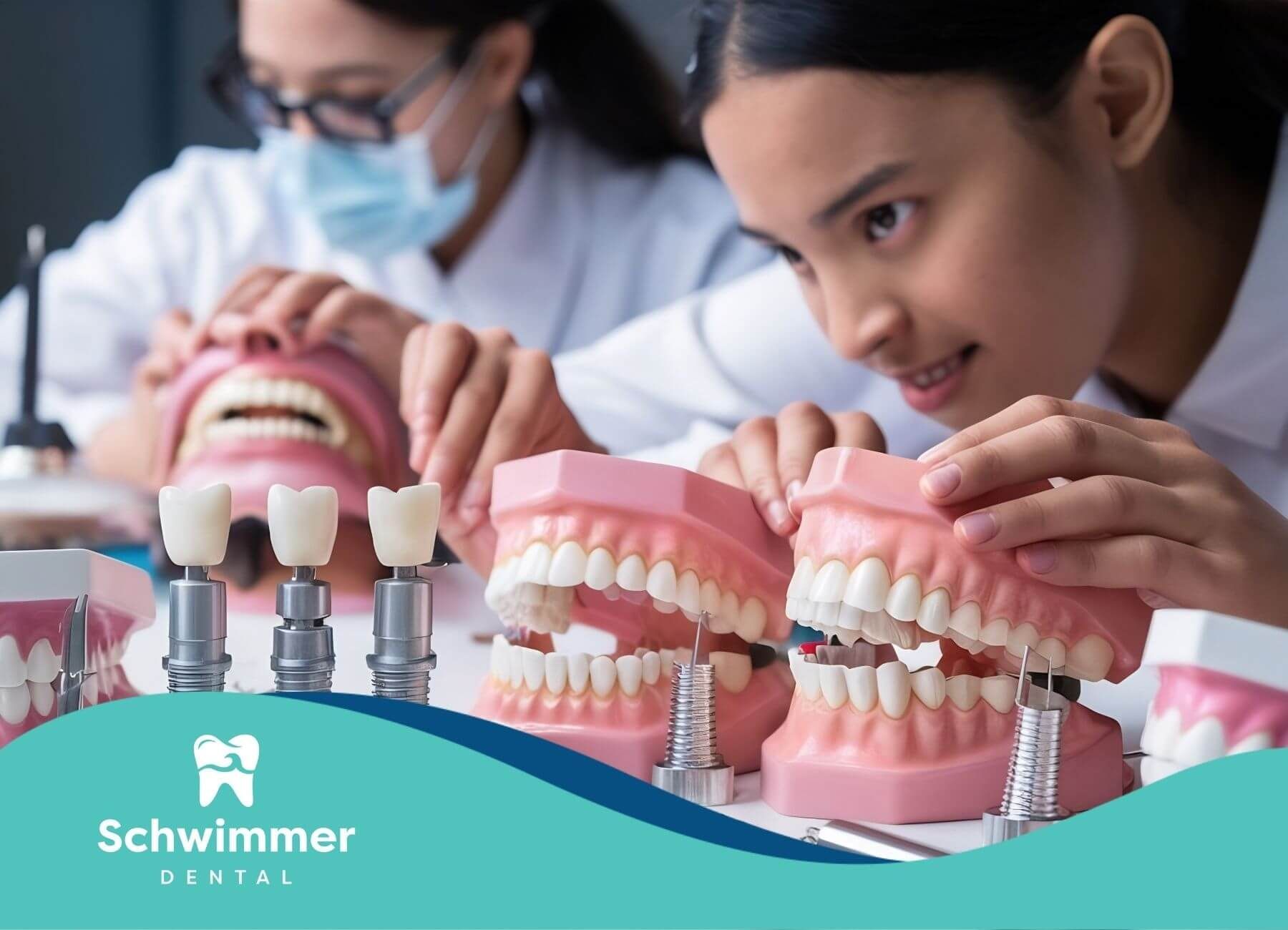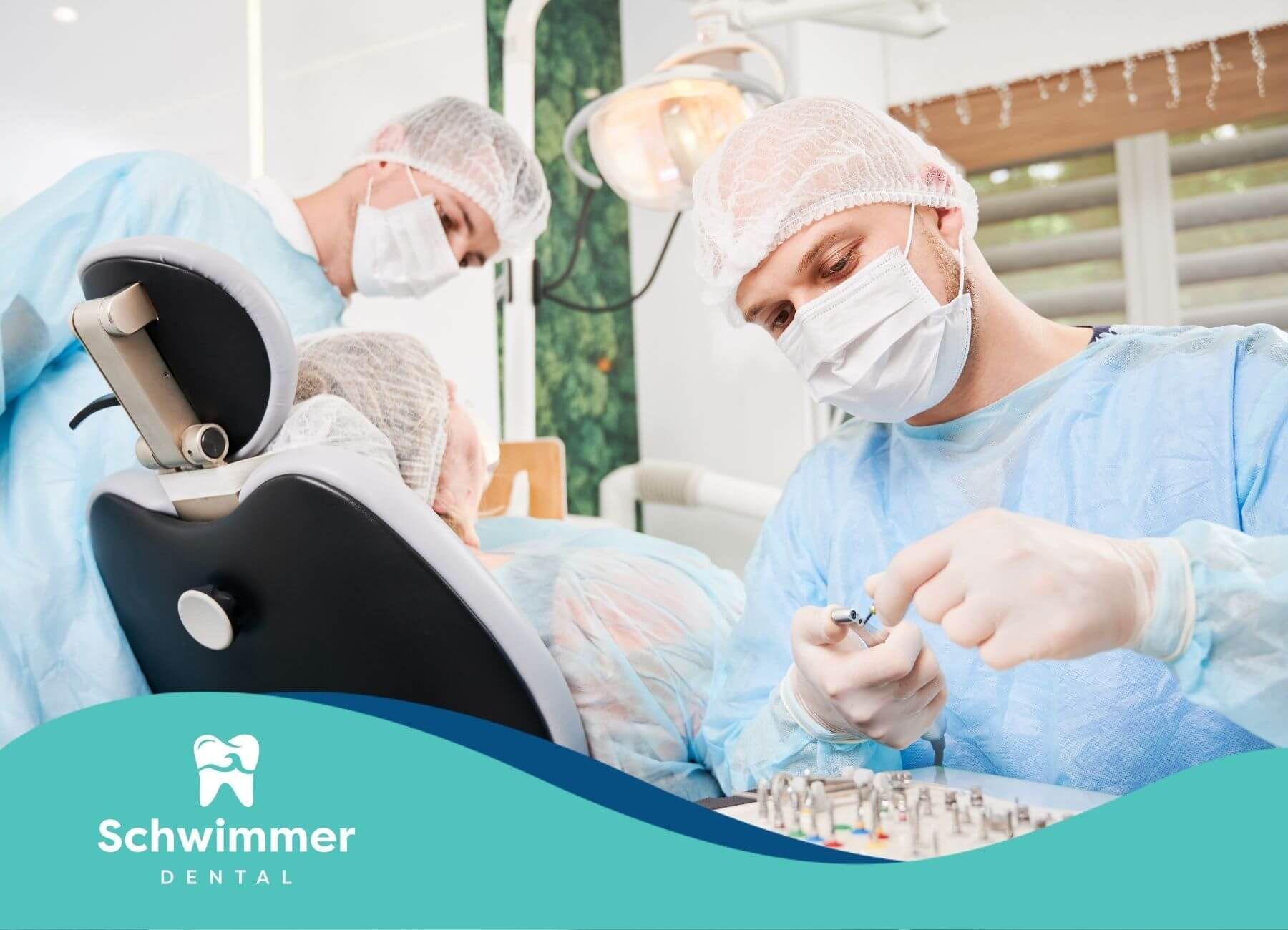The 8 Common Dental Issues Every Expectant Mother Should Know
Key Highlights
- Pregnancy hormones can heighten risks for dental problems such as pregnancy gingivitis, gum disease, and tooth decay, impacting both your oral and overall health.
- Poor oral health during pregnancy may lead to complications like premature delivery and low birth weight for your baby.
- Pregnancy increases susceptibility to issues such as gum sensitivity, tooth erosion, and dry mouth.
- Morning sickness and sugary cravings can harm dental health if preventive care isn’t practiced.
- Routine dental checkups and safe treatments during pregnancy help maintain oral health for both you and your baby.
When you're pregnant, your body goes through a lot of changes, and your oral health is no exception. As a dentist in NJ, I always advise expecting mothers to stay on top of their dental care, because pregnancy can bring on issues like gum sensitivity and tooth decay.
Let me walk you through the common dental problems during pregnancy and the best ways to prevent them.
1. Pregnancy Gingivitis
Pregnancy gingivitis is a common gum disease that many people can get during pregnancy. It happens when hormone levels like progesterone and estrogen go up and down. These hormones make the gums more sensitive.
Your gums can look red, feel swollen, and even bleed, even if you just brush your teeth a little bit. This often starts in the second month of pregnancy. It usually gets worse around the eighth month, but it often goes away after the baby is born.
To deal with pregnancy gingivitis, it is important to have good dental health. Brush your teeth with fluoride toothpaste and floss gently to keep plaque away. If your gums are still sore, rinsing your mouth with salt water can also help bring down the swelling.
For bad cases, see your dentist, as leaving gingivitis untreated can turn it into a worse gum disease called periodontal disease.
Taking care of your dental care is very important because gum inflammation that you do not treat has been linked with health issues such as premature delivery or your baby having low birth weight.
Getting your teeth cleaned at the dentist regularly when you are pregnant can help your gums stay healthy. It helps with irritation, supports your well-being, and works to keep your baby’s health safe.
2. Increased Tooth Decay and Cavities
Pregnancy hormones and changed eating patterns can make you more likely to get tooth decay. Many mothers-to-be have more cavities during this time. This happens because cravings for sugary foods and less care for your teeth can go up.
If you do not brush after eating sticky or sweet foods, bacteria can build up. This will hurt your tooth enamel and can create cavities. You can fight this problem by picking better snacks like fresh fruits and vegetables.
Remember to use good dental care, too. Brush your teeth two times each day with fluoride toothpaste and floss every day. This helps lower the growth of plaque. It is also very important to get regular dental cleanings. Doing this helps find tooth decay early.
Looking after your teeth this way is good for you and also helps your baby later on. It is very important to treat any cavities during pregnancy. If you do not, you might spread harmful bacteria to your baby. When you need a filling, it is best to use mercury-free composite fillings. That way, both you and your baby can stay healthy.
3. Pregnancy Tumors (Pyogenic Granuloma)
During pregnancy, some women may get pregnancy tumors, which are also called pyogenic granuloma. These growths are not cancer and show up on the gums.
They often happen because of hormonal changes or more blood flow, which is common in the second trimester. Most of the time, these pregnancy tumors are not painful. They usually go away after the baby is born.
It is important to have good oral health to lower the chance of gum problems. You can do this by having regular dental cleanings and eating a balanced diet. This way, you help make sure of a healthy pregnancy for both the mother and baby.
4. Tooth Erosion from Morning Sickness
Morning sickness makes you vomit often. This can be bad for your teeth because stomach acid hits them and wears down the enamel. Weakened enamel makes your teeth more sensitive and can lead to cavities if you do not treat it. If you eat or crave acidic foods, the problem can get even worse.
To keep your teeth safe from acid, rinse your mouth with water and some baking soda after you throw up. This will help get rid of the acid. Do not brush your teeth right after vomiting because your enamel is soft and brushing can harm it. Instead, wait at least 30 minutes before you brush. When you do, use a fluoride toothpaste to help make your enamel stronger.
Make sure you see your dentist often. Regular visits help your dentist check for enamel problems and treat them early. Taking these steps will help keep your dental health in good shape while you have morning sickness.
5. Gum Disease and Periodontitis
If gingivitis is not taken care of, it can turn into gum disease called periodontitis. This is a bad infection that hurts the gum tissues and jawbone. Gum disease can make your teeth loose and even cause bacteria to get into the bloodstream, which is very dangerous.
Periodontitis is also linked with early births and babies born with low birth weight. When there is too much bad bacteria in your mouth, it can make your gums swell. This swelling can hurt a pregnancy, so getting treated on time is important.
To stop gum disease from getting worse, take care of your oral health and make sure to go for your routine cleanings. Brush well with fluoride toothpaste and floss every day. Catching problems early helps a lot, so if you see pus on your gums or your gums hurt more than usual, book a dental visit right away.
If you keep your gums healthy, you help protect not just your own mouth, but also your baby as they grow.
6. Loose Teeth Due to Hormonal Changes
Pregnancy hormones like estrogen and progesterone can make the ligaments and bones that keep your teeth firm softer for a while. This can make the teeth feel unstable or loose. It can also make some people who are expecting a baby feel worried.
Loose teeth can often return to normal after you have your baby if you take good care of them. Keep using fluoride toothpaste to brush your teeth, floss every day, and try not to eat hard or crunchy foods because these could make things worse.
Let your dentist know if you feel pain or something is not right. There are ways to help keep your teeth firm if you notice problems.
To avoid other problems, always make your dental health a top concern during pregnancy. Get regular dental checkups so the dentist can watch for loose teeth and help you fix any issues early. This will help keep your smile healthy and strong.
7. Dry Mouth (Xerostomia)
During pregnancy, many women get a dry mouth. This is also called xerostomia. The reason for this can be hormonal changes, medicines, or morning sickness. Dry mouth is not good for dental health. You need enough saliva to fight acids. Saliva helps stop tooth decay and gum disease.
To deal with dry mouth, drink plenty of water. Having sugar-free drinks or snacks can keep your mouth wet. Including dairy products in your meals can also help. Be sure to have regular dental cleanings. Good dental care keeps your teeth and gums healthy. It is also important for your baby’s teeth.
8. Excessive Salivation (Ptyalism)
Many pregnant women go through excessive salivation, also called ptyalism, at the start of pregnancy. It often happens in the first trimester. Hormonal changes in the body are the main cause. These changes can have an effect on your oral health.
This is what makes you have more saliva.
This may be bothersome, but dealing with it is not hard. Taking good care of your teeth, and following a healthy diet, can really help. Eating crunchy fruits and vegetables is a good way to cut down extra saliva. This helps with your dental health. It is good for both you and your baby during this important time.
Conclusion
Keeping your oral health in good shape during pregnancy is very important for you and your baby. Because of hormonal changes, and new eating habits, pregnant women may face different dental problems like gingivitis or dry mouth.
The good news is you can lower the risks by having regular check-ups and choosing safe dental care steps. Taking care of your oral health also helps protect your baby’s well-being.
At Schwimmer Dental, we specialize in providing safe and effective dental care for expecting mothers. Whether you’re dealing with morning sickness, pregnancy gingivitis, or just need a routine cleaning, our team is here to help you maintain a healthy smile.
Contact us today at office@schwimmerdental.com for personalized care and expert advice. Your smile—and your baby’s health—deserves the best!
Frequently Asked Questions
Can dental problems during pregnancy affect my baby?
Yes, dental problems like gum disease can hurt your baby. This can lead to things like premature delivery or your baby having a low birth weight. You should make oral health a top concern during pregnancy. It will help keep you and your baby safe and support your baby’s growth and health.
Is it safe to get dental treatments while pregnant?
Dental treatments can be safe when you are pregnant, especially in the second trimester. The dentist may give you local anesthesia so you do not feel pain. If you need an X-ray, they might put a lead apron on you to make sure your baby will be okay.
What are the signs I should see a dentist during pregnancy?
Go see your dentist if you have things like gums that keep bleeding, tooth pain, or teeth that feel loose. It is best to get help early. This can stop bigger problems, like gum disease or tooth loss, when you are pregnant.
Sources:
- https://www.cdc.gov/oral-health/hcp/conversation-tips/talking-to-pregnant-women-about-oral-health.html
- https://pmc.ncbi.nlm.nih.gov/articles/PMC10845246/
- https://pmc.ncbi.nlm.nih.gov/articles/PMC6883753/
- https://www.nhs.uk/pregnancy/related-conditions/common-symptoms/bleeding-gums/
- https://www.aafp.org/pubs/afp/issues/2008/0415/p1139.html



